-
 Art of Wellness Acupuncture & Traditional Chinese Medicine (TCM)11704 Wilshire Blvd, Suite 295, Los Angeles, CA, 90025
Art of Wellness Acupuncture & Traditional Chinese Medicine (TCM)11704 Wilshire Blvd, Suite 295, Los Angeles, CA, 90025
myartofwellness@gmail.com310-451-5522 Office Hours
MonClosedTue7:30 am --4 pmWed7:30 am --4 pmThu7:30 am -- 4 pmFri7:30 am -- 4 pmSat7:30 am -- 4 pmSunClosedOur office opens from Tuesdays to Saturdays 7:30 am to 4 pm, will be closed on Memorial day, Independent day, Labor day, Thanksgiving day, Christmas and New year.
-
Recent Posts
- How to Treat Dysautonomia With Acupuncture and TCM
- How to Treat Myofascial Pain Syndrome With Acupuncture and TCM
- How to Treat Costochondritis With Acupuncture and TCM
- How to Treat Ankylosing Spondylitis With Acupuncture and TCM
- How to Treat Gastroparesis With Acupuncture and TCM
- How To Treat Sleep Apnea With Acupuncture and TCM
- How To Treat Baker’s Cyst With Acupuncture and TCM
- How to Treat Sinusitis With Acupuncture and TCM
- How To Treat Sjogren’s Disease With Acupuncture and TCM
- How to Treat Raynaud’s Syndrome With Acupuncture and TCM
- How to Treat Autoimmune Disorders With Acupuncture and TCM
- Chinese New Year 2024 Year of the Dragon
- Sign up to receive news and updates and get my free report:“The Top 10 Reasons to Try Acupuncture”

Depression
How to Treat Seasonal Affective Disorder (SAD) With Acupuncture and TCM
By Qineng Tan, L.Ac., Ph.D. & Xiaomei Cai, L.Ac., Ph.D.

Signs of depression as winter approaches? Seasonal Affective Disorder (SAD) is a form of depression, with some similarities to bi polar disorder, that recurs at a certain time of year. Sometimes called seasonal depression, or “the winter blues,” SAD symptoms typically peak during the darkest months. Acupuncture and TCM can provide relief from Seasonal Affective Disorder symptoms, including depression and anxiety, insomnia, and fatigue.
SAD is a form of mental illness that affects 5-10% of the population every year. Women are more likely to experience seasonal depression symptoms than men, and this depressive disorder is more common in young adults than other age groups. However, anyone, at any age, can experience some symptoms of seasonal affective disorder.
People who live in colder climates, farther away from the earth’s equator, are statistically much more likely to have SAD than people who live in warmer areas. It is generally believed that shorter periods of daytime sunlight are a big part of what causes seasonal affective disorder. People who work indoors, or at night, are considered to be at a higher risk for developing SAD, because they aren’t exposed to daylight.
Often, signs of SAD begin to appear in late fall, and then worsen as the days get shorter and the winter months drag on. The symptoms of depression then go away as the days get longer, and spring starts. It is possible, though, for some people to have a type of seasonal depression that comes on in the summer, or any time of year.
Mental health professionals consider SAD to be a specific type of bi polar disorder, or form clinical depression. Winter pattern SAD, or winter depression, is more common, but some people exhibit summer pattern SAD, or summer depression. A doctor will diagnose seasonal affective disorder with the same criteria they use for diagnosing major depression, when the symptoms have appeared at the same time for two or more consecutive years.
People may be more susceptible to SAD if they already suffer from other psychological disorders, like panic attacks, anxiety, PTSD, eating disorders, or ADHD, or if other people in their family also suffer from depression.
While medical science has not definitively proven what causes SAD, it is believed to be related to lower levels of serotonin and/or higher levels of melatonin. Imbalances in these brain chemicals can lead to the lethargic feelings and depressed mood that characterizes seasonal depression, which can have a dramatic impact on your ability to take part in your normal daily activities for four to five months out of the year.
Less daylight can also affect Vitamin D levels, as we normally get some of our Vitamin D from direct exposure to sunlight. The combination of the time change due to daylight savings time, and the shorter days, can have a major impact on your daily rhythms, and some people have a harder time making this adjustment.
When you are already feeling moody, anxious, or depressed, facing holiday events with your family or other people can feel overwhelming. Feelings of loneliness and sadness can make you feel isolated and unable to enjoy things that seem to be making others so happy. Changes in your appetite can lead to overeating unhealthy foods and weight gain, and you may feel triggered and self-conscious about your body.
TCM can be a highly effective way to treat all types of depression and anxiety, as it approaches mental health disorders holistically. Finding the root cause of emotional and physical symptoms from the TCM point of view can help relieve sleep problems and mood disorders, and help to restimulate mental clarity and a healthy appetite.
Top 10 SAD Symptoms

Naturally, most people feel some alteration in their mood and energy as the seasons change. Shorter days, longer nights, and colder temperatures are bound to have an effect on your mood and behavior. But, if you begin feeling persistently low, and notice that it is affecting your sleeping and eating habits, then you may need to pay closer attention to the possibility of seasonal depression. Symptoms of seasonal affective disorder include:
- Depression, depressed mood, sadness, feeling low
- Fatigue, lack of energy, low energy, tired all the time
- Sleep problems, insomnia, poor sleep, oversleeping
- Irritability, agitation, anxiety
- Changes in appetite, cravings for carbohydrates and/or sugar, or lack of appetite
- Weight gain or weight loss
- Lack of interest in activities you usually enjoy
- Difficulty concentrating, foggy headed
- Feelings of worthlessness, futility, guilt
- Dark feelings, thoughts of death, suicidal thoughts, suicidal ideation
Sometimes people show behavioral changes that are an indication of SAD. For some people, this might be an increase in repetitive motions, like pacing, hand-wringing, or general restlessness. For others, it may mean that their overall manner and mode of movement slows down and becomes sluggish. They have a hard time getting out of bed or off the couch; when they do, they may shuffle, slowly, and their posture is hunched over. People may avoid socializing and isolate themselves. They may have a low libido.
When people have winter-pattern SAD, the symptoms tend to lean towards depression, heaviness, oversleeping, overeating, and weight gain. Summer-pattern SAD may induce feelings of anxiety, agitation, lack of appetite, insomnia, irritability, and even anger and violent episodes.
Treatment for Seasonal Affective Disorder (SAD)
If you seek medical help for seasonal affective disorder, you may be prescribed antidepressant medications, such as SSRIs. SSRIs (like Prozac, Lexapro, Zoloft or Celexa) help to elevate the levels of serotonin in the brain. Bupropion (Wellbutrin) is also used to help relieve symptoms of SAD by increasing serotonin and dopamine. Benzodiazepine (Xanax), which is generally used to help anxiety, may also be prescribed to help seasonal depression.
These medications can all have some negative side effects, and people may feel dependent on them, even when their SAD might naturally be abating.
Talk therapy and cognitive behavioral therapy can help people cope with their feelings and find ways to manage their behavior so that their health doesn’t suffer during the months they are having SAD symptoms.
Light therapy is now considered a viable way to treat SAD. This involves buying and using a special lamp to simulate sunlight. This can be helpful for some people, but for others, it can cause sleeplessness, eye strain, and headaches. People who have diabetes or eye problems should probably not use a light box because it could cause damage to the retina of the eye. People who take certain kinds of anti-inflammatory medications or antibiotics can also be more sensitive to light. The light can also trigger manic episodes in people who already have bipolar disorder.
Acupuncture and TCM herbs offer a very safe way to relieve symptoms of depression and anxiety, without unwanted side effects.
Can Acupuncture Help SAD or Seasonal Depression?

In the practice of TCM, we pay close attention to the way the seasons impact our health, as our bodies and minds reflect the transformation of the world around us. Winter and Summer are times when the energy in our environment can feel the most dramatic, and the feelings these times inspire in us can go deep. Extreme heat and cold definitely have an effect on our bodies, and being surrounded by darkness or intense brightness can have a real impact on our mental outlook.
The Five Elements theory in TCM gives us a framework for understanding how temperatures, light and colors, and other aspects of seasonal changes affect and interplay with the organ systems of the body. The Liver, for example, is considered to be responsible for moving Qi through the body. If the Liver Qi is stagnant and slow, it can lead to very real feelings of frustration and ultimately, depression. The Kidney is associated with sun energy, so lack of sunlight can lead to feeling cold and sad.
It is possible to balance this energy within ourselves, so that we can experience the seasons without harm to our physical or mental health. By using specific acupuncture points, we can help to nourish and strengthen the energy in the organ systems. We can also use acupressure points and herbs to help promote better sleep, relieve fatigue, restlessness, and irritability.
Top Tips from TCM to Help Prevent Seasonal Affective Disorder

Making changes to your lifestyle is essential in order to banish the winter blues. It is easy to get trapped in a cycle of unhealthy eating and sleeping behaviors, and it may take some effort to get back on track. To avoid sluggish energy and loss of fitness, make it your goal to adopt these daily habits:
- Eat More Nourishing, Warm Foods – Many people crave sweets and starchy foods during the winter months, but the combination of eating too many carbohydrates and not getting enough exercise can lead to weight gain. This will likely add to feelings of heaviness and depression. According to the TCM philosophy of nutrition, we want to concentrate on eating more warming foods like soups and stews with lots of vegetables, including hearty, filling foods like sweet potatoes and winter squashes. Add sour flavor and probiotics with fermented foods like pickled cabbage.
- Avoid Cold Foods and Drinks – Now it is especially important to avoid cold foods like iced treats, smoothies, or raw salads. Eating too much sugar or drinking alcohol, especially in the evening, can cause blood sugar levels to rise and then fall, which can cause you to wake up in the night.
- Exercise in the Morning Light – A brisk walk around the neighborhood or a short hike in the fresh air is ideal. You want to get your heart pumping and take in as much sunlight as you can in the early part of the day.
- Get Some Sun – Take every opportunity to sit by a window. If this is not possible, keep your work and home space well lit during the daytime, so that you don’t get drowsy. Go for one more walk in the afternoon to catch the sunset, if you can.
- Adjust Your Sleep Cycle – Go to bed earlier, and wake with the sun. It is natural that we want more rest and time in our cozy, warm beds in the winter. Avoid staying up in the darkness with the unnatural light from your screens shining in your eyes before bedtime. Wind down with a warm drink and a self-care foot massage.
Acupuncture Near Me for SAD and Seasonal Depression – Los Angeles Area
Acupuncture and TCM are now widely accepted as effective treatments for mental health issues and psychological disorders of all kinds: depression, anxiety, PTSD, panic disorder. A TCM practitioner will listen carefully to all of the physical and emotional symptoms each individual presents, and structure each acupuncture treatment and herbal formula accordingly. Thus, as the seasons change, and you go through life changes, your treatment plan changes, too. To avoid Seasonal Affective Disorder, it is best to see your acupuncturist a few months before the difficult season will arrive, so that this year, you can prevent seasonal depression from coming on.
*This article is for education from the perspective of Traditional Chinese Medicine only. The education provided by this article is not approved by FDA to diagnose, prevent, treat and cure human diseases. It should not stop you from consulting with your physician for your medical conditions. Traditional Chinese Medicine is based on Qi, which is an invisible force that usually cannot be observed by modern science. Because science focuses on testing ideas about the natural world with evidence obtained through observation, these aspects of acupuncture can’t be studied by science. Therefore acupuncture and Chinese herbs are often not supported by double-blind, randomized trials, and they are considered alternative medicine therapies in the United States.
How to Treat Trigeminal Neuralgia With Acupuncture and TCM
By Qineng Tan, L.Ac., Ph.D. & Xiaomei Cai, L.Ac., Ph.D.
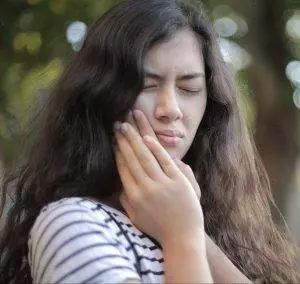
Sudden, sharp, shooting pain in the cheek or jaw that feels like an electric shock? Intense facial pain that lasts for a few seconds or a few minutes, and then goes away? This could be a sign of Trigeminal Neuralgia, a type of nerve pain or neuropathy that affects the nerves in the face. TCM and acupuncture provide a safe, effective trigeminal neuralgia treatment to relieve pain.
Trigeminal neuralgia is a chronic pain disorder associated with the trigeminal nerve, which branches out across the face along each eye, cheek, and the upper and lower jaws. It communicates signals from the face to the brain related to pressure and temperature, and is also involved with the motor action of chewing.
Neuropathy is a general term that refers to any kind of nerve damage or dysfunction that leads to sensations of pain, tingling, or numbness. When there is something wrong with the trigeminal nerve–maybe compression, a lesion on the nerve, or some other problem–then even a light touch, or eating something hot or cold, can cause a very intense pain signal. Trigeminal neuralgia is sometimes called tic douloureux, meaning “painful tic,” because the jolt of pain causes people to wince or grimace. Sometimes people think the pain they’re feeling is dental pain.
The pain of trigeminal neuralgia is often described in terms like: stabbing, burning, and excruciating pain. Sometimes people say it feels like a sudden electric shock. This pain may last only a few seconds, or a few minutes, or it can come and go over the course of hours or days.
Occipital neuralgia is a similar condition, in which the pain is in the back of the head and upper part of the neck. This occurs when the occipital nerves are irritated.
Trigeminal neuralgia pain often flares up on just one side of the face, sometimes isolated to one area. Pain may be around or behind the eye, across the cheek, along the jaw, or inside the mouth. Doctors categorize trigeminal neuralgia into 2 types:
- Type 1 – Typical – facial pain occurs in sporadic, sudden bursts which may last seconds or minutes, or come and go over the course of a few hours. There are periods of times between episodes when there is no pain.
- Types 2 – Atypical – pain in face is constant, with aching, burning sensations present over a widespread area.
Trigeminal neuropathy is similar in some ways to other cranial neuropathy conditions like Bell’s Palsy. In the case of Bell’s palsy, lack of blood flow to the 7th cranial nerve causes a temporary paralysis of the facial muscles and one side of the face to droop. Bell’s Palsy usually goes away after a while, but Trigeminal neuropathy tends to become a chronic condition that gets worse as time goes on.
Acupuncture and TCM are an excellent way to help relieve pain and dysfunction due to all types of neuropathies, including Bell’s Palsy, peripheral neuropathy, sciatica/sciatic nerve pain, piriformis syndrome, radiculopathy (pinched nerve) that can cause neck pain, thoracic or low back pain, or shoulder pain, occipital neuralgia, Morton’s neuroma, and carpal tunnel syndrome.
Acupuncture treatment can help not only to relieve pain caused by nerve disorders, but can actually help to repair damaged nerves, regenerate nerve tissues, and facilitate better communication throughout the nervous system.
Top 10 Trigeminal Neuralgia Triggers

Trigeminal neuralgia pain can occur spontaneously for no apparent reason, but it is often triggered by some sort of touch, movement, or other stimulus. Some common triggers of trigeminal neuralgia pain include:
- Brushing your teeth
- Eating or drinking something hot, cold, or spicy
- Touching your face, leaning your face on your hand
- Shaving facial hair
- Putting on makeup
- Washing your face
- Talking
- Smiling, laughing
- A breeze blowing in your face, wind in your face
- Vibrations from being in a car or airplane, etc.
While the nerve pain caused by trigeminal neuralgia is not life-threatening, and doesn’t really affect your ability to move your face, that doesn’t mean that it doesn’t have an impact on your life. Never knowing when you might suddenly experience severe pain is debilitating. Many people with this type of neuropathy pain can fall into a depression and even begin to experience suicidal thoughts because the thought of having to live with this kind of pain forever is scary.
What Causes Trigeminal Neuralgia?
Trigeminal neuralgia tends to occur more frequently in women, and in people who are over 50. While the exact cause is not always apparent, it usually has to do with a blood vessel creating extra pressure somewhere along the nerve. Sometimes it can be due to a head injury or a tumor in the brain. Multiple sclerosis (MS) can sometimes contribute to trigeminal neuralgia. Sometimes people develop trigeminal neuralgia after a dental procedure.
Trigeminal Neuralgia Treatment Medications
The medications most commonly prescribed for people suffering from trigeminal neuralgia are a class of drugs called anticonvulsants. These medications were originally intended to be used to treat seizures and epilepsy, but they have been found to help some people with neuropathy pain, too. Medicines like Neurontin and Topamax can help disrupt the nerve signals that are causing the pain.
The side effects of these medications can include dizziness, trouble concentrating or remembering things, drowsiness, headaches, vision problems, and nausea.
If a patient has not found relief from trigeminal neuralgia nerve pain with medication, then surgery may be attempted. Doctors may drill into the skull to expose the trigeminal nerve and try to remove blood vessels that may be pressing against the nerve. This is called microvascular decompression (MVD), and is an invasive operation that carries risks and requires a few weeks of recovery time. Not everyone gets pain relief from this procedure, in which case, other options may be tried.
Gamma knife radiosurgery and Radiofrequency lesioning are less invasive procedures that involve applying radiation or heat from an electrode to the trigeminal nerve. The idea is to purposely damage the nerve in order to stop the pain signals. In some cases, this can lead to numbness, or loss of sensation in the face. For some patients, the pain comes back in a matter of years, in which case the surgery can be repeated.
Acupuncture offers an alternative treatment that can relieve pain from trigeminal neuralgia without side effects or risk of permanent nerve damage.
Can Acupuncture Help Trigeminal Neuralgia?

According to the TCM view, different people can suffer from the same type of pain condition or disease but have different underlying problems that are the root cause of the pain. When treating individual patients, an acupuncture practitioner first listens carefully and observes all of a person’s symptoms to determine what kind of internal pathogens or imbalances may be contributing to the pain disorder.
In the case of trigeminal neuralgia, the cause may be related to a blockage in the stomach meridian, which extends into the same facial areas as the trigeminal nerve does. As with other neurological conditions (like Bell’s Palsy and Parkinson’s disease), this blockage may be related to an invasion of wind, either hot or cold, that affects the flow of Qi through the face and head.
In addition to acupuncture treatment, Chinese herbs can help strengthen Qi and help with the rejuvenation of nerve cells. It is also important for a person struggling with trigeminal neuralgia to be cautious of eating or drinking anything that is too hot or too cold. It is also advised that you avoid spicy foods, caffeine, sugar, and processed foods.
Acupuncture works as a natural analgesic to relieve pain, affecting the way that nerve cells transmit pain signals and activating the opioid receptors in the brain.
A case study of a woman who had suffered from trigeminal neuralgia pain for 25 years found that after six weeks of acupuncture treatment, she was free of pain, and was still free of pain six months later.
A review of studies related to trigeminal neuralgia treatments concluded that acupuncture was more effective for pain management of trigeminal neuralgia than medication or surgery, and had fewer adverse effects than either of the other solutions. Over a five year period, acupuncture treatment also cost significantly less money than other treatments.
A study that compared patients who had had trigeminal neuralgia symptoms for an average of 10 years. Half were treated with acupuncture and the other half treated with the anticonvulsant medication Carbamazepine. The acupuncture group reported a higher percentage of effective pain reduction; 95% of the patients found relief, with 30 out of 40 people reporting that their pain was totally resolved.
One study of a dozen patients treated with acupuncture found that all of the participants had reduced pain, to the point that they no longer needed to take medications for trigeminal neuralgia.
Acupuncture Near Me for Trigeminal Neuralgia in the Los Angeles Area
Trigeminal neuralgia can have a serious impact on a person’s quality of life. The pain of this nerve condition can be so extreme that it inspires fear and depression. The standard medical treatments for trigeminal neuralgia don’t work for everyone, and they can come with significant negative side effects. If you or someone you love is suffering from facial pain, please do not hesitate to reach out to us at Art of Wellness Acupuncture. Drs. Tan and Cai have been serving the Westside and Santa Monica since 1995, with expertise in TCM and integrative medicine.
*This article is for education from the perspective of Traditional Chinese Medicine only. The education provided by this article is not approved by FDA to diagnose, prevent, treat and cure human diseases. It should not stop you from consulting with your physician for your medical conditions. Traditional Chinese Medicine is based on Qi, which is an invisible force that usually cannot be observed by modern science. Because science focuses on testing ideas about the natural world with evidence obtained through observation, these aspects of acupuncture can’t be studied by science. Therefore acupuncture and Chinese herbs are often not supported by double-blind, randomized trials, and they are considered alternative medicine therapies in the United States.
How to Treat Addiction With Acupuncture and TCM
By Qineng Tan, L.Ac, Ph.D. & Xiaomei Cai, L.Ac., Ph.D.

Are you, or is someone you love, struggling with alcohol addiction or some other substance abuse problem? Alcoholism, drug addiction, and other issues like porn addiction problems or food addiction can be helped with TCM treatment. Acupuncture for addiction can help people overcome the physical symptoms of alcohol withdrawal, and help them deal with the mental and emotional aspects of substance abuse recovery.
Drug use, drinking, and smoking are behaviors that are widely practiced and deeply ingrained in our modern society. If we consider tobacco smoking and alcohol consumption in addition to “harder” drugs, then over 60% of the population uses some type of addictive substance on a regular basis.
Substance use disorders (SUDs) are a major health concern worldwide. It is estimated that over 20 million Americans are currently suffering from some type of addiction to drugs or alcohol. While addiction can happen to people of all ages, young people are especially at risk for substance abuse. When teens and young adults start binge drinking or abusing drugs, it can have a serious effect on their brain development and increase their chances of developing a substance abuse problem.
More recently, the surge of opioid use has dramatically increased the number of people who are dangerously dependent on prescription painkillers or deliberately misusing opioid medications like fentanyl or Oxycontin. People can become addicted to opioid medications in a short period of time. Accidental overdose is one of the leading causes of death in the U.S., which has contributed to the recent decline in average life expectancy.
Even moderate drinking and use of recreational drugs can affect a person’s overall health, sleep habits, and fertility. There are many benefits to reducing your alcohol consumption, or choosing to go through an alcohol detox or a designated period of sobriety, like “Sober October” or “Dry January.” A TCM herbal detox with acupuncture treatment can help improve your vitality and get rid of nagging health issues.
If you know you have a serious problem with addictive behaviors, though, you will probably need some sort of treatment and support system to help you get sober and recover physically and mentally from substance use disorder.
What Causes Addiction?
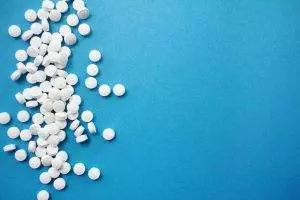
When we talk about addiction, we are usually referring to the relationship of the body and mind to psychoactive substances such as: alcohol, nicotine, marijuana, heroin, cocaine, amphetamines, methamphetamine, hallucinogens, etc. The chemical composition of these substances causes them to have a profound effect on the brain chemistry of human beings.
Unfortunately, many drugs that are prescribed by doctors to help relieve pain and other symptoms of illness are habit-forming, too. When people try to stop taking the medication they’ve been using to help with post-surgical pain, for example, or to help them sleep, or to relieve situational depression and anxiety, they find they can’t just “quit.”
Even “milder” substances like caffeine and sugar, which many people consider to be a regular part of their daily diet, can be abused to the point that they become detrimental to your health. And, of course, we all know how hard it is for people to quit smoking. Nicotine is one of the most addictive substances out there.
Most of these drugs affect the way the brain produces dopamine and other neurochemicals. When you stop drinking or using the drug, the brain is not ready to go back to its old ways of creating and releasing dopamine. There is a period of adjustment, during which symptoms of withdrawal can make a person very uncomfortable, or even violently sick.
Certain behaviors, like scrolling through social media websites on your phone, or looking at pornography, or even engaging in sexual activity, can also be addictive because of the way they impact dopamine production and other brain activity.
There has been a lot of shame and stigma attached to alcoholism and addiction. Sometimes, people live in denial of the fact that they are too heavily reliant on drinking or using drugs to help them cope with stress. Alcohol abuse or drug abuse are still considered by some people to be personal problems, having to do with a lack of willpower or gratitude.
We now understand that addiction is a disease, and that it can be difficult and actually dangerous for people to try to stop using some drugs without some form of treatment. Doctors and mental health professionals are trained to help people safely recover from substance abuse, and treatments exist to provide relief from drug withdrawal symptoms. In addition to the 12 step program Alcoholics Anonymous, which provides emotional support through group interactions, many other clinics and rehab centers provide care for those trying to stop using drugs and alcohol.
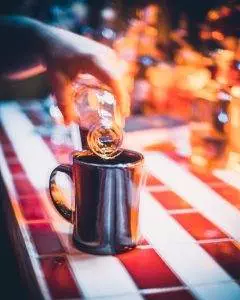
Still, most people find that recovering from addiction is extremely difficult, probably the hardest thing they have ever tried to do. Many people, no matter what kind of treatment they receive, or how many times they go through a 12 step program, still relapse. First a person needs to decide that they are ready to commit to recovery. Then, finding the right support is crucial to success.
TCM methods of acupuncture and herbs offer an alternative or adjunctive treatment for addiction. Acupuncture treatment has been shown to help patients suffering from alcoholism and depression, reducing cravings and symptoms of withdrawal and improving mental health.
Acupuncture can help people overcome substance abuse, addressing both the physical effects of drug use with an effective alcohol detox or drug detox, and the emotional problems most people face when they begin recovery treatment.
Top 10 Symptoms of Withdrawal from Alcohol Dependence and Drug Abuse
Withdrawal is the body’s reaction when a person stops using drugs or alcohol after having been ingesting them regularly for a significant period of time. When the body and brain have become addicted to a substance, the physical and emotional need for that substance can cause a severe reaction when a person stops abruptly, making it very difficult for a person to resist using again. Withdrawal symptoms can vary, depending on what type of substance you’ve been using, and how long you’ve been using it.
Symptoms of withdrawal include:
- Tremor, hands shaking, body shaking, seizures
- Anxiety, depression, agitation, feeling jumpy, irritability, delirium, hallucinations
- Watery eyes, tearing, runny nose
- Hot flashes, chills, hot flushes, hot and cold, sweating, clammy skin
- Nausea, vomiting, diarrhea
- Muscle cramps, muscle aches, muscle pain, muscle tension
- Dehydration
- High blood pressure, fast heartbeat, irregular heartbeat, palpitations
- Anxiety, depression, overwhelming negative emotions
- Insomnia, trouble sleeping, restlessness
Other signs of withdrawal can include: trouble concentrating, memory loss, foggy headedness, pupils dilated, loss of appetite.
Some medical detox programs are designed to help people gradually taper their use of drugs like amphetamines or sleep medications so as to minimize withdrawal symptoms. Treatment centers, such as a methadone clinic, may use certain approved medications to help relieve cravings when people are coming off of heroin or prescription pain medications.
Acupuncture, a TCM detox program, and other TCM treatments can serve as an alternative or adjunct treatment to help alleviate withdrawal and help people survive through the toughest parts of recovery.
Top 5 Ways Acupuncture Can Help Addiction
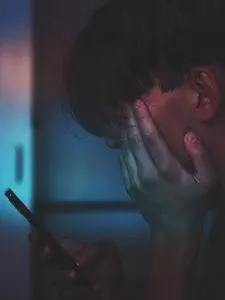
The relationship between Chinese medicine and alcohol goes back many centuries. As early as 1600 B.C., we have records of alcohol being used in medicinal preparations and for its anesthetic properties. Problems with overuse of alcohol, however, are also a longstanding part of Chinese culture, so TCM has developed treatments to help people reduce their consumption of alcohol.
According to TCM philosophy, too much alcohol creates excessive heat in the body, and disturbs the balance of Yin and Yang. In conventional medicine, the focus tends to be on how alcohol abuse impacts the liver. In TCM, we see that binge drinking also taxes the stomach and spleen, and encourages dampness to take hold. Thus, acupuncture treatment for alcohol addiction will often focus on clearing heat and dampness from the organ systems, while strengthening the stomach and spleen.
TCM takes a holistic approach to treating Substance use disorders, meaning we focus not only on the physical symptoms of withdrawal, but also on the emotional, mental, and spiritual problems associated with addiction.
Most people become dependent on drugs or alcohol because they are already experiencing some form of emotional struggle or mental health issue. When the substance is taken away, those feelings come up to the surface again, demanding attention. For many people, the anxiety and depression they face when they quit drinking or using drugs is overwhelming.
Some people may avoid 12 step programs, an AA meeting, alcohol rehab, drug addiction centers for substance use disorders, or even one-on-one talk therapy because they are not ready to talk about the trauma that triggered their anxiety or depression. Acupuncture treatment can be very helpful for anxiety and depression, without having to delve into these conversations.
TCM treatment for addiction works on multiple levels:
- Detox – TCM has a history going back for many centuries of actively seeking to remove toxic substances from the body to improve both physical and mental health. The practice of using Chinese herbs used in combination has been developed to be highly effective as a detox from all kinds of drugs. A TCM detox treatment program uses acupuncture treatment as well as herbs taken internally (as a tea or capsule) and used externally (detox patches) to draw toxins from the body, providing a deep cleansing for the liver and other organ systems.
- Reduces cravings – whether the problem is nicotine, alcohol, opiates, food, or some behavior like engaging with porn, the use of auricular acupuncture and applying pressure to acupressure points on the head and ears for cravings can be very effective.
- Withdrawal Symptoms – Acupuncture has been shown to help people with symptoms of opioid withdrawal, heroin withdrawal, and prevent relapses.
- Mental Health – people who were treated with acupuncture for addiction reported that it helped them feel more confidence in their ability to quit. Acupuncture helps relieve anxiety and the negative effects of stress.
- Sleep aid – many people start using drugs in the first place because they have trouble sleeping. When people quit drinking and using drugs, they can suffer from insomnia and restlessness. Acupuncture is an excellent modality for helping people to relax and experience deeper, higher quality sleep.
Acupuncture has been shown to have an effect on neurotransmitters like dopamine and serotonin, which are involved in the brain processes that make certain substances so addictive.
Several types of Chinese medicines based on herbal formulation have been tested and approved for treatment of opiate addiction in China.
Studies have shown that electro-acupuncture, and auricular acupuncture can reduce cravings, and alleviate anxiety related to drinking cessation.
Acupuncture for Addiction Treatment Near Me in Los Angeles Area
Addiction can be devastating for individuals and their loved ones, but substance abuse and other kinds of addictions can be overcome with time, dedication, and the right treatment plan. At Art of Wellness, we are ready to become part of your support team, providing consistently excellent health care through acupuncture and herbs, as well as being there for you when you need emotional support. We want our patients to think of our clinic as a second home, where they can find peace and strength to help them overcome their substance use disorder.
*This article is for education from the perspective of Traditional Chinese Medicine only. The education provided by this article is not approved by FDA to diagnose, prevent, treat and cure human diseases. It should not stop you from consulting with your physician for your medical conditions. Traditional Chinese Medicine is based on Qi, which is an invisible force that usually cannot be observed by modern science. Because science focuses on testing ideas about the natural world with evidence obtained through observation, these aspects of acupuncture can’t be studied by science. Therefore acupuncture and Chinese herbs are often not supported by double-blind, randomized trials, and they are considered alternative medicine therapies in the United States.
How to Treat Oligospermia With Acupuncture and TCM
By Xiaomei Cai, L.Ac., Ph.D. & Qineng Tan, L.Ac., Ph.D.
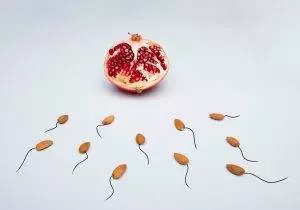
If you and your partner have been trying to get pregnant but it hasn’t happened yet, maybe you are concerned that it could be due to male infertility, or low sperm count, also known as Oligospermia. Male factor infertility is an issue in 40-50% of cases when a couple is having trouble conceiving. Acupuncture and TCM herbs offer a male infertility treatment that can help improve sperm production, increase sperm count, and help men produce healthy sperm.
Infertility in men is more common than you might think. Statistics show that infertility increasing worldwide is an issue, as many couples are having trouble conceiving. Roughly one in ten couples find that they are not able to get pregnant without some form of fertility treatment. Most men don’t know they may have this problem until they are trying to get their partner pregnant and things aren’t working. When couples go in for a female and male infertility test, about half of the time they find that male fertility is compromised. The cause of infertility in male can be due to many variables, so it may take more testing to discover why there is a problem. In many cases, infertility in men and women is never fully explained medically.
You can take a sperm count test at home, but that doesn’t tell you the whole story. A fertility test for men, or semen analysis, performed through a doctor will give you more information about sperm motility, sperm shape, the concentration of sperm in your semen, the Ph balance of the semen, and other details that may help to determine if there is a problem with male factor infertility. Other, more specific tests can show: swimming speed and direction, whether there are antisperm antibodies (ASAs) present, the sperm’s effectiveness at breaking through the outer wall of an egg, etc. Of men who are experiencing problems with infertility, about ten percent have azoospermia, which means a sperm count of zero, or no sperm in the semen. This can happen due to genetic conditions, radiation or chemotherapy treatments, use of some drugs, or anatomical abnormalities.
One of the most common causes of infertility in men is varicoceles, which are swollen veins in the testicles, similar to varicose veins. Varicoceles are not always noticeable, and often don’t cause any problems. However, they can block proper blood flow in the testicles, cause the temperature of the scrotum to rise, and have a negative impact on sperm production. This condition can be treated with surgery to repair the veins, or redirect blood flow to healthier veins.
Perhaps you have already heard about how beneficial TCM treatment can be for infertility in women, but you may not know that acupuncture for male infertility is also effective, whether used as an adjunct to ART (assisted reproductive technologies) treatment for male fertility, or as an alternative to conventional medical treatment. In the case of varicoceles, for example, studies have shown that men treated with acupuncture showed similar improvement in sperm motility and quality to men who had had minimally invasive surgery to help repair varicoceles.
Acupuncture treatment works on many levels, helping to improve blood circulation, reduce inflammation, cool excess heat, boost testosterone and erectile function, as well as helping to optimize overall health by reducing the effects of stress and anxiety, and improving sleep.
Top 10 Cause of Low Sperm Count

Problems with low sperm count and low sperm motility can be related to underlying health issues, or in some cases, lifestyle habits that may affect sperm production.
- Varicocele – swelling in the blood vessels in the testicles that has a negative impact on sperm production and sperm quality.
- Infections – some illnesses, like mumps, or sexually-transmitted diseases, like gonorrhea or HIV, can cause inflammation, damage, and/or scarring in the testicles that can affect sperm health or the mechanical release of sperm from the testicles.
- Ejaculation problems – chronic health conditions like diabetes, the use of blood pressure medications like alpha-blockers, or injury to the urinary tract or spine, can cause problems with the process of sperm being mixed with semen from the prostate and exiting the body through the penis. Retrograde ejaculation, for example, means that semen and sperm are going into the bladder instead of being expelled through the penis during ejaculation. Erectile dysfunction (ED) can also be an issue.
- Immune Infertility – autoimmune disorders can cause antibodies (antisperm antibodies, or ASA) to mistakenly attack sperm as if they were foreign bodies. This can happen in both men and women. (If a woman is producing ASAs, they attack the sperm when they enter the female reproductive system.) Some men who have had a vasectomy begin to develop these antibodies, and then, even after reversal of the vasectomy (vasovasostomy), they still have male infertility issues.
- Blocked tubes – several sets of tubes are involved in proper functioning of the male reproductive system and the male urinary system. If any of these tubes (the vas deferens, epididymis, seminal vesicle, urethra) are blocked, due to infection, inflammation, scarring, or other damage, it can affect sperm making it into the semen and out of the body during ejaculation. BPH and other prostate problems can cause inflammation in this area.
- Hormone imbalance – low testosterone levels or imbalances in levels of FSH and LH, hormones can cause low sperm production.
- Undescended testicles – a small number of male babies are born with one or both testicles that have not descended into the scrotum. In some cases, the testicles will descend within a few months on their own; in other cases, surgery is performed to correct the problem. If a boy grows into adulthood with his testes undescended, it can affect male fertility.
- Cancer or other tumors – a tumor or imbalance in hormones due to cancer (testicular cancer, prostate cancer, or bladder cancer) can disrupt sperm production. Side effects of cancer treatments like radiation, chemotherapy, and hormone therapy can also slow down sperm production or stop it. These side effects can also affect libido and sexual function.
- Chromosomal defects – several genetic disorders can cause infertility in men due to chromosomal abnormalities (Noonan’s syndrome, Cystic fibrosis, Kleinfelter syndrome)
- Celiac disease – While there has only been limited research done thus far, there have been some connections made between male infertility and celiac disease, which is a type of autoimmune disorder. One study suggested that a gluten-free diet helped men with celiac disease to increase sperm count.
Other things that can impact sperm count and sperm motility include the use of recreational drugs like marijuana, opiates, hormone supplements meant to boost testosterone, or anabolic steroids taken to build more muscle mass. Medications used to treat autoimmune disorders, like IBDs, Crohn’s disease, etc., can also affect male fertility.
How to Increase Sperm Count – Medical Treatments

Medical treatment and ART for male infertility depends first on testing to get as clear a diagnosis as possible. If it seems like some infection is causing problems, antibiotics may be prescribed, although in some cases, an extended infection may have already done some damage to the organs involved. If hormone imbalance is the problem, medications that alter the balance of FSH and LH, hormones crucial to sperm production, may be used, including estrogen receptor blockers, or human chorionic gonadotropin. As previously mentioned, surgeries to repair varicoceles can help to restore fertility.
In many cases, though, the exact cause of male infertility is not known. Male infertility is a complex health issue. The physical mechanics of sperm production, erectile function, and ejaculation are all important. It is important to acknowledge that these forces are closely connected to a man’s mental health and emotional health. If there is a lot of stress around trying to get pregnant, stress about having sex, stress in the relationship, or many other issues that may come into play, then the stress itself can have a real impact on sexual function and sperm production. Acupuncture and TCM is a good treatment method to address all of these physical and emotional issues at the same time, without unwanted side effects.
Can Acupuncture Help Male Infertility and Oligospermia?
First, let’s make it clear: acupuncture treatment for low sperm count is not going to involve needles being placed anywhere near the scrotum or penis. Acupuncture works on a subtle level and is relatively painless. Patients usually find it relaxing, and often take a nap during the treatment.

According to TCM theory, both blood and Qi need to flow smoothly throughout the channels of the body, nourishing the organs, for there to be optimal health. This is particularly true when it comes to promoting good reproductive health. Sperms must be ready to move through both the man’s reproductive system and the woman’s reproductive system, penetrate an egg, and start a new life. In order for healthy sperm to be produced, there needs to be a lot of blood and energy flowing to the testicles, where sperm are created.
In TCM, dampness and phlegm are often the causes of blockages. Acupuncture treatment focuses on improving blood flow, not only to testicles, but also to the kidneys and liver. TCM theory considers the kidney to be the keeper of a person’s “essence.” Essence is the life material that we inherit from our parents and pass on to our children. The kidneys are also considered to be responsible for the regulation and transformation of fluids in the body. Strengthening the kidneys, clearing heat, phlegm, and dampness from the organs, and nourishing the blood and Qi are the main focus of acupuncture treatment for low sperm count.
Nutrition, diet, exercise, stress reduction, adequate sleep, and other lifestyle habits are important factors in treating low sperm count. Your acupuncturist near me will go over the details in order to help you choose foods that boost fertility and adjust your routines so that they are most beneficial for infertility.
It helps to realize that sperm take about two to three months to mature, so acupuncture, herbs, and changes in lifestyle, as part of a holistic treatment regimen, need to be given adequate time and commitment to take effect.
One study confirmed that scrotal temperature and sperm count were improved in a significant number of men treated for oligospermia with acupuncture.
A study measuring sperm maturity and functionality found that patients treated with acupuncture for five weeks showed an increase in sperm function at the end of the five weeks, and then scored higher for sperm function again five weeks after treatment had ended.
Another study looked at acupuncture for low sperm motility and found that acupuncture helped increase sperm motility in a significant number of men.
Chinese herbs have been shown to have a positive effect on balancing FSH and LH levels.
Acupuncture Near Me for Oligospermia in Los Angeles
Dealing with male infertility due to low sperm count can be frustrating and stressful. It’s important that you and your partner put together a team of supportive health care providers who are also experts in the field of infertility treatment. At Art of Wellness, we have over thirty-five years of experience providing the very best in integrative care for infertility. We have worked with many of the top ART providers in Los Angeles, providing adjunctive care for couples going through fertility treatment.
*This article is for education from the perspective of Traditional Chinese Medicine only. The education provided by this article is not approved by FDA to diagnose, prevent, treat and cure human diseases. It should not stop you from consulting with your physician for your medical conditions. Traditional Chinese Medicine is based on Qi, which is an invisible force that usually cannot be observed by modern science. Because science focuses on testing ideas about the natural world with evidence obtained through observation, these aspects of acupuncture can’t be studied by science. Therefore acupuncture and Chinese herbs are often not supported by double-blind, randomized trials, and they are considered alternative medicine therapies in the United States.
How to Treat PTSD With Acupuncture and TCM
By Qineng Tan, L.Ac, Ph.D. & Xiaomei Cai, L.Ac., Ph.D.

Post Traumatic Stress Disorder (PTSD) is a type of mental illness that develops after a person has gone through a traumatic life event. PTSD flashbacks, intrusive thoughts, nightmares, and sleep disorders are a few of the most common signs of PTSD. Acupuncture and TCM are widely accepted as a highly effective way to treat complex PTSD and other stress disorders, as well as anxiety, depression, panic attacks, and insomnia.
PTSD is mostly commonly associated with veterans of the military, as many soldiers who have served in combat experience trauma related to war violence. A significant amount of scientific research and psychiatric study has been devoted to finding out about PTSD and what treatments for PTSD are effective. Relative to other conditions, there have been quite a few studies showing that acupuncture can be helpful for PTSD. The U.S. Navy has even started an acupuncture training program in San Diego, after a Pentagon study showed that TCM is beneficial for veterans.
PTSD is not only a problem for military veterans, though. PTSD can result from all kinds of traumatic life events, including things like: accidents, natural disasters, surgeries, assaults, attacks, abandonment, or the death of a loved one. More than 8 million Americans are currently living with post traumatic stress. People of all ages can experience PTSD. PTSD can result from experiencing something traumatic directly, or being a witness to such an event. People whose jobs involve exposure to violence or disturbing situations, such as first responders, social workers, or police officers, can also have PTSD because of things they have seen. A person can be deeply traumatised by something they didn’t see happen firsthand, but that they heard happened to someone close to them.
The body’s response to extreme stress is one of its ways of protecting us. Stressful situations cause the “fight-or-flight” response and chemicals like adrenaline to be released. When this happens repeatedly, or to an extreme degree, because a person is literally in fear for their life, there can be long-lasting physical and emotional effects. Normal, everyday stress we hope to release from the body through exercise, meditation, laughter, and other stress-reducing activities. But when a person has endured abuse or life-threatening danger, they may not be able to release the stress from their bodies so easily.
TCM theory offers a way to help people deal with mental health issues like PTSD because it creates a context in which emotional and mental symptoms interact with physical symptoms. TCM addresses the way that trauma and negative emotions are stored in the body, sometimes causing overwhelming emotional and physical symptoms. Acupuncture and herbs are holistic treatments for PTSD that can be used as an adjunct to therapy and medications to help relieve stress, sleep problems, mood disorders, negative emotions, and problems with cognitive function.
Top 10 Signs of PTSD

Many people don’t realize that they are experiencing post traumatic stress. PTSD can overlap with several other types of mental health problems, and the symptoms of PTSD can often seem similar to those of other anxiety disorders or symptoms of depression. What PTSD feels like can be highly individual to each person and what caused their initial trauma.
The most commonly recognized symptoms of PTSD include:
- Flashbacks, intrusive thoughts, reliving traumatic events, can’t stop thinking about what happened
- Nightmares, recurrent, vivid, disturbing dreams
- Avoidance of triggering places, activities, or people
- Memory loss, amnesia, unable to remember periods of time related to the traumatic event
- Negative perception of self, negative perception of the world, blaming self or others
- Isolation, unable to connect with other people, relationship problems
- Feelings of anger, irritability
- Hypervigilance, always aware of perceived threat, can’t relax, exaggerated startle response, always on guard, panic attacks
- Difficulty concentrating, inability to focus on the present
- Insomnia, can’t sleep
PTSD often coexists with other mental health issues like anxiety, panic attacks, and depression. Chronic fatigue syndrome (also knowns as ME/CFS)has been associated with PTSD. Fibromyalgia, a syndrome that can cause generalized muscle pain, sleep problems, fatigue, and other problems can be related to PTSD. Sometimes fibro manifests after a traumatic event.
Types of PTSD

The term “stress disorder” refers to a combination of physical and emotional symptoms that are the body’s and mind’s stress responses to some type of trauma.
Different types of stress disorders include:
- Normal stress response – even common everyday work stress and relationship stress can cause widespread health problems. Serious issues like a relationship breakup, or job loss can lead to negative emotions and physical problems due to stress. People of all ages can experience debilitating symptoms of stress like: stomachaches, headaches, trouble concentrating, rapid heartbeat or trouble sleeping. If stress is allowed to build up over time, it can seriously damage health. Past illnesses or viral infections, like Epstein Barr and mononucleosis can also be a factor.
- Acute stress disorders – acute post traumatic stress is the immediate aftereffect of some sort of traumatic event or life-or-death situation. If the short-term (30 days or less) acute signs of trauma are left unaddressed, they can turn into PTSD.
- Uncomplicated PTSD – this refers to PTSD symptoms related to a specific traumatic event, such as a car accident, being the victim of a crime or assault, or surviving a natural disaster and its aftermath. This type of PTSD causes symptoms like: flashbacks, nightmares, avoiding a particular area, thing, or person, and strong feelings of anger, blame, and fear that impact your relationships and sleep patterns.
- Complex PTSD – complex trauma is the result of multiple, repeated traumatic episodes, like suffering abuse as a child, being in an abusive relationship, domestic violence, or repeated sexual abuse. Complex PTSD could also happen to people living in wartime conditions or who are part of a targeted community under brutal conditions. PTSD attacks can be brought on by complex PTSD triggers that remind you of the traumatic events, such as: a particular place or smell, a time of year or date, a physical pain or sensation in a particular part of the body, or reading a story or seeing a movie or TV show that brings up the memory.
- Comorbid PTSD – this refers to PTSD that coexists with other serious issues such as substance abuse, addiction, and/or depression. Comorbid PTSD is very common, because many people suffer from more than one of these mental health conditions at the same time.
In general, complex PTSD and comorbid PTSD are considered more difficult to treat and more likely to affect people throughout their lives than uncomplicated PTSD.
PTSD Treatment
Treatment for PTSD typically involves a combination of psychotherapy/cognitive behavioral therapy (CBT) and psychiatric medications for PTSD such as antidepressants (SSRIs like Zoloft, Prozac, or Paxil) and anti-anxiety medications (like Xanax, Ativan, Valium, or Klonopin). Long-term use of anti-anxiety medications is generally not recommended, as patients can become dependent on them, leading to abuse of the drugs. SSRIs can be helpful for symptoms of depression, but they can also have negative side effects, like sexual dysfunction (ED), weight gain, nausea, dizziness, and making sleep problems worse.

Exposure therapy is a specific type of therapy that helps people learn coping skills by working with the distressing memories or exploring possibly frightening situations in a safe environment with a therapist. Eye movement desensitization and reprocessing (EMDR) helps patients learn to adapt to the stress tied to the past trauma by thinking about it while looking at a movement pattern or listening to a repetitive sound. This treatment has been shown to help PTSD patients heal emotional trauma more quickly than talk therapy or CBT alone.
The conventional treatments for PTSD can help some patients, to different degrees, but many people with complex trauma do not want to go through this type of treatment. Talk therapy, trauma-based CBT, and exposure therapy may be terribly intimidating to people who are suffering with PTSD, and patients may be more afraid of entering into these kinds of therapy than continuing on with their current symptoms.
The TCM modality of acupuncture can have a positive effect on neurotransmitters, the brain chemicals that influence cognitive thought patterns and moods, without the potential negative side effects or dependency that can result from medications. Acupuncture can be a helpful alternative or complementary treatment to other types of therapy for PTSD.
Can Acupuncture Help PTSD?
In historical records of TCM, we do not see a word or description of a condition that is directly synonymous with PTSD. However, in TCM, we view emotional states as being related to the function, or dysfunction, of specific organ systems. The symptoms of PTSD can correlate with these relationships between the organs, the mental state, and physical manifestation of symptoms:
- Lung – Grief – Wheezing, trouble breathing, sweating, fatigue
- Spleen – Worry – Nausea, gastric problems, loss of appetite
- Liver – Anger – Headaches, muscle pain, dizziness
- Heart – Anxiety – Palpitations, insomnia
- Kidney – Fear – Urinary frequency, night sweats, memory problems
A TCM provider will look carefully at how each individual describes their physical symptoms and emotional state, and will choose acupuncture points for PTSD and herbs to help strengthen the organ systems that need nourishment.
In regards specifically to military veterans with PTSD, many survivors are wary of seeking medical or psychological treatment for complex trauma. The majority of soldiers who have served in the Middle East in recent years have been diagnosed with PTSD, but less than half of those veterans are receiving medical treatment for PTSD. Many people, in general, are reluctant to seek care, either because they don’t trust that it will work, or their complicated feelings of shame, guilt, grief, and anger are too overwhelming to share with others.
Acupuncture can be particularly helpful for some people suffering from PTSD because it does not necessarily have to involve talking about the original trauma or abuse. Some patients may avoid psychotherapy for this very reason, as they are not ready, and may never be ready, to go over these details with another person. An acupuncturist can help relieve symptoms of anxiety and depression by focusing on the person’s emotional and physical needs and tailoring the treatment to fit their symptoms and lifestyles.
A clinical study done by the Long Beach V.A. randomly divided patients into “real acupuncture” and “sham acupuncture” groups, and the patients received treatments twice per week over the course of 12 weeks. The veterans who received real acupuncture showed significant physiological improvement, with less startle reactions, as measured by skin sensors, than the sham group.
A Rand review found that acupuncture helped improve symptoms of depression, anxiety, and sleep problems in PTSD patients.
Acupuncture Near Me for PTSD in Los Angeles
It can be a long and challenging process to overcome complex PTSD, but with the right combination of PTSD treatment, it is possible to reduce or even eliminate symptoms. With a TCM approach and acupuncture treatment, we can help reduce anxiety and depression, address feelings of anger and grief in a clinically meaningful way, and help to promote better sleep. If you or a loved one is dealing with unresolved trauma and needs help, you may find that acupuncture is a low-risk and supportive way to treat PTSD.
*This article is for education from the perspective of Traditional Chinese Medicine only. The education provided by this article is not approved by FDA to diagnose, prevent, treat and cure human diseases. It should not stop you from consulting with your physician for your medical conditions. Traditional Chinese Medicine is based on Qi, which is an invisible force that usually cannot be observed by modern science. Because science focuses on testing ideas about the natural world with evidence obtained through observation, these aspects of acupuncture can’t be studied by science. Therefore acupuncture and Chinese herbs are often not supported by double-blind, randomized trials, and they are considered alternative medicine therapies in the United States.